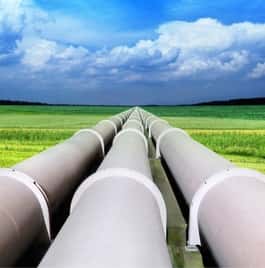 The International Energy Agency (IEA) released a special report yesterday suggesting that natural gas is on the cusp of entering a ‘golden age,’ but a number of factors must converge in order to maximize the market's potential.
The International Energy Agency (IEA) released a special report yesterday suggesting that natural gas is on the cusp of entering a ‘golden age,’ but a number of factors must converge in order to maximize the market's potential.
The report contends that the only way natural gas can flourish globally is through the full-scale development of ‘unconventional gas,’ such as shale gas, tight gas and coal-bed methane. However, some of the extraction methods – including hydraulic fracturing, or fracking – that are used to tap these unconventional gas sources have come under intense scrutiny in the U.S. and elsewhere.
The IEA suggests that addressing this scrutiny head-on and developing responsible practices for producing unconventional gas are critical steps that stakeholders must take today. To guide this process, the group produced a list of seven ‘golden rules’Â to help usher in the golden age. They include the following:
- Measure, disclose and engage: Get involved at the local level when pursuing a development, establish baselines for environmental indicators, and measure and disclose operational data.
- Watch where you drill: Choose well sites carefully in order to minimize the project's effects, and closely monitor hydraulic fractures.
- Isolate wells and prevent leaks: Establish tight rules on well design, construction, cementing and integrity testing, and consider appropriate minimum-depth limitations on fracking.
- Treat water responsibly: Reduce, reuse and recycle water wherever possible to reduce the burden on local water resources, and minimize the use of chemical additives.
- Eliminate venting, minimize flaring and guard against other emissions: Target zero venting and minimal flaring of natural gas during well completion, and seek to reduce fugitive and vented greenhouse-gas emissions during the life of a well.
- Be ready to think big: Seek opportunities for realizing economies of scale and coordinated development of local infrastructure to reduce environmental impacts.
- Ensure a consistently high level of environmental performance: Set robust emergency response plans, pursue continuous improvement of regulations and operating practices, and recognize the case for independent evaluation and verification of environmental performance.
‘A bright future for unconventional gas is far from assured,’ the report states. ‘Numerous hurdles need to be overcome, not least the social and environmental concerns associated with its extraction.
‘The industry needs to commit to apply the highest practicable environmental and social standards at all stages of the development process. Governments need to devise appropriate regulatory regimes, based on sound science and high-quality data, with sufficient compliance staff and guaranteed public access to information,’ it continues.
America's Natural Gas Alliance (ANGA), the industry's prominent trade group, voiced some criticism of the IEA study, noting that natural gas ‘is already playing a pivotal role’ in the global energy mix.
‘Producers are fully demonstrating their commitment to safe and responsible development,’ said ANGA president and CEO Regina Hopper, in a statement.
ANGA also defended the industry's environmental record and the steps being taken to address various types of risks.
‘In calling for the industry to 'address' environmental issues, the IEA has ignored concrete steps that have been taken and effective practices already in place to produce this vital resource while protecting our other natural resources,’ Hopper noted, pointing to advances such as rules tied to the disclosure of fracking chemicals and the recent adoption of best practices for producing gas in the Appalachian Shales.






